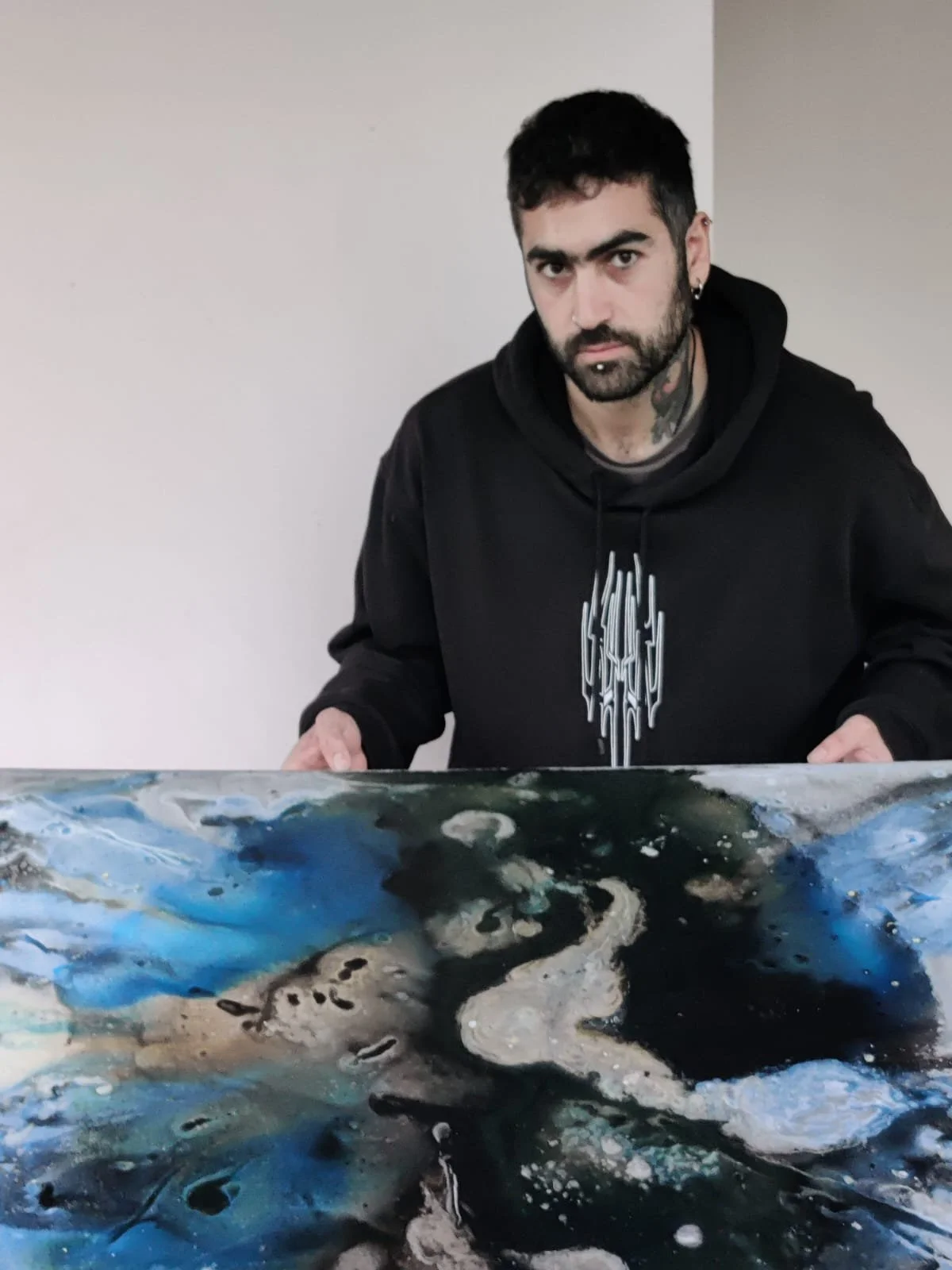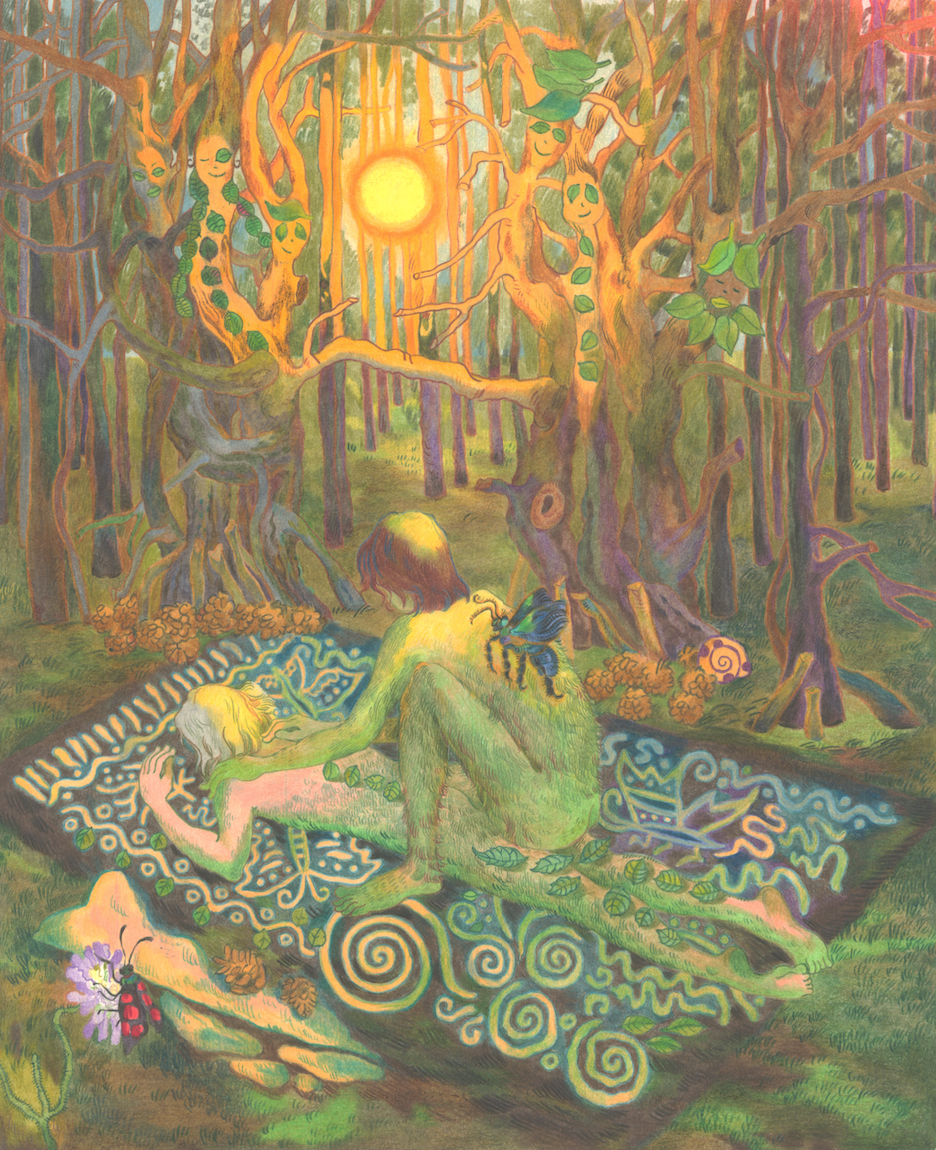10 Questions with Karolina Zgłobicka
Al-Tiba9 Art Magazine ISSUE17 | Featured Artist
Karolina Zgłobicka, a Polish artist based in Valencia, Spain, explores themes of relocation, memory, and the everyday objects that anchor us to our personal histories. She earned her BA (Hons) in Fine Art from the Manchester School of Art, Manchester Metropolitan University, in 2015, following a Foundation Studies program at Manchester College. She has been longlisted for Jackson's Painting Prize in 2023 and has been featured in various editions of Arts In Square magazine. Karolina Zgłobicka has participated in The Other Art Fair organized by Saatchi Art, Beep Painting Biennale at Elysium Gallery, and The Manchester Contemporary. Her work has also been shortlisted for multiple awards, including the Royal Ulster Academy Annual Exhibition and the Secret Art Prize. Her paintings are part of private and gallery collections in the US, Australia, Germany, the UK, Italy, France, and Spain. Karolina Zgłobicka's art reflects on the intricate relationship between cherished objects and the memories they evoke, prompting the viewer to reconsider their connection with the material world and the passage of time.
Karolina Zgłobicka - Portrait
ARTIST STATEMENT
Karolina Zgłobicka's work explores the transparent nature of objects and memories. Born in Poland, and having lived in England before settling in Spain, her journey has profoundly shaped my artistic vision. Relocation and its changes inspired her to delve into themes of displacement, the unfamiliar, and remnants of the past we carry with us. In her recent paintings, Zgłobicka examines the physicality and significance of everyday objects, isolating them from their natural environments to emphasize their role in our memories. These often mundane and overlooked objects become central figures in her compositions, reminiscent of staged performances. This isolation highlights the tension between selective memory and pervasive symbolism. The artist's inspiration comes from personal and family photographs, as well as items she finds on the streets of Valencia, where she lives now. These seemingly trivial objects are repurposed to create new narratives and connections within her art. By focusing on what we lose, discard, or cherish as keepsakes, Zgłobicka delves into the interplay of memory and symbolism. The application of paint on her canvases reflects my fascination with time, capturing its fluidity and the marks it leaves. Through repetitive layers and motifs and the dissolution of definitive shapes, she challenges the boundaries of figurative painting and theoretical constructs in artistic practice. Her work reimagines the past and explores profound connections between memory, time, and the objects in our lives.
Ej Elki, oil on canvas, 92x73x2 cm, 2023 © Karolina Zgłobicka
AL-TIBA9 ART MAGAZINE ISSUE17
Get your limited edition copy now
INTERVIEW
Please could you introduce yourself to our readers? Who are you and how did you develop into the artist you are today?
I'm Karolina Zglobicka, an artist originally from Poland, currently living in Valencia, Spain, after spending a significant part of my life in England. My artistic journey is deeply intertwined with my personal experiences of relocation, memory, and cultural transitions. These shifts have shaped how I perceive the world, fueling my exploration of objects and memories as carriers of personal and collective history. My practice is rooted in questioning the every day and uncovering layers of meaning in seemingly mundane things, allowing me to examine the passage of time, loss, and nostalgia.
How has your journey from Poland to England and now Spain shaped your perspective as an artist?
Each place I've lived has left a profound imprint on my work. Growing up in Poland instilled in me an appreciation for tradition, history, and cultural symbols. Moving to England introduced me to a different way of thinking about heritage and displacement as I began navigating life as an immigrant. Now, living in Spain, I find inspiration in the streets of Valencia—objects left behind, faded walls, and the vibrant yet transient marks of life in urban spaces. These transitions have deepened my understanding of the relationship between memory, place, and identity.
Cold, cold war © Karolina Zgłobicka
Cold, cold war in pink © Karolina Zgłobicka
Much of your work seems rooted in personal experiences. What initially drew you to explore themes of relocation, memory, and everyday objects?
Relocation inherently forces you to reevaluate your connection to objects, places, and memories. What do we carry with us? What gets left behind? For me, this became a central question as I moved between countries. Everyday objects, which often seem insignificant, are embedded with stories and emotions that reveal our human need to remember and preserve. I'm fascinated by how these items can transform into powerful symbols of our experiences, bridging the gap between the personal and the universal.
Speaking of everyday objects, could you share more about how you choose and incorporate these items into your work?
I often select objects that carry traces of life and time—things found on the streets, remnants of personal belongings, or symbols from family and cultural history. In Valencia, I'm particularly drawn to items left in public spaces: an old tile, a scrap of fabric, or a faded poster. By isolating these objects in my compositions, I elevate their significance, inviting viewers to reflect on their own associations and the stories these items might tell.
Janka, janka, oil on canvas, 92x73x2 cm, 2024 © Karolina Zgłobicka
You also mention drawing your inspiration from photographs. What role do they play in building your narratives? How do they help you to convey the fluidity of time and memory?
Photographs are both personal and universal—they freeze moments while also reminding us of the fleeting nature of time.I use them as starting points to explore memory's malleability. By manipulating and reinterpreting images, I deconstruct their original context, allowing them to take on new meanings. This process mirrors how memories shift and fade, blending the clarity of the past with the ambiguity of interpretation. They help me capture the fluid, layered nature of remembering and forgetting.
Ultimately, in what ways do you see everyday objects acting as symbols for memory, and how do you intend for viewers to interact with these symbols in your work?
These objects act as anchors to specific moments, places, or emotions. By isolating them, I encourage viewers to see beyond their functionality and consider the stories they carry. I hope my work inspires reflection on personal connections and shared cultural narratives, fostering a dialogue between the intimate and the collective.
My solemn vow, oil on canvas, 92x73x2 cm, 2024 © Karolina Zgłobicka
With your focus on memory and symbolism, how do you balance personal significance with broader universal themes that resonate with diverse audiences?
The personal is often the gateway to the universal. By drawing from my own experiences, I tap into emotions and themes—displacement, loss, nostalgia—that many can relate to. I aim to create work that is specific enough to feel authentic but open-ended enough to allow viewers to project their own stories and interpretations onto it.
You've been longlisted for the Jackson's Painting Prize and featured in various exhibitions. How has public reception influenced your artistic direction?
Public reception has been incredibly encouraging and humbling. It's fascinating to hear how people connect with my work and interpret it through their own lenses. This feedback reinforces the importance of continuing to explore themes that resonate on both personal and collective levels. It also challenges me to push my practice further, experimenting with new ways of engaging with memory and narrative.
An only child to an only child © Karolina Zgłobicka
What never happened to us, oil on canvas, 50x61x2 cm, 2024 © Karolina Zgłobicka
Are there any upcoming projects or new themes you're interested in exploring, especially in relation to your experiences in Valencia?
I'm currently preparing for an exciting solo show that will take place in Poland, which feels deeply significant to me. This project represents a return to my roots and a sense of closing the circle—bringing my journey full circle from where it began. After leaving Poland to explore, develop, and learn through my experiences in England and Spain, I'm now ready to share the perspectives and stories I've gathered along the way.
After living and working in various countries and participating in numerous projects and exhibitions worldwide, where do you see yourself and your work five years from now?
Art is not a job—it's life itself, and like life, it's constantly evolving. My work shifts and transforms with every conversation I have, every book I read, and every object I discover. Because of this, I don't have a definitive answer about where I'll be in five years. I'm a nomad at heart, following where life leads me and letting my surroundings, experiences, and encounters shape my practice.
I do have dreams and ideas—a desire to explore deeper connections between memory, culture, and objects and perhaps towork on larger, more immersive projects. But ultimately, my path as an artist is fluid, responsive to the opportunities and inspirations that come my way. Wherever I am, I'll continue to seek meaningful ways to express and connect through art.


























